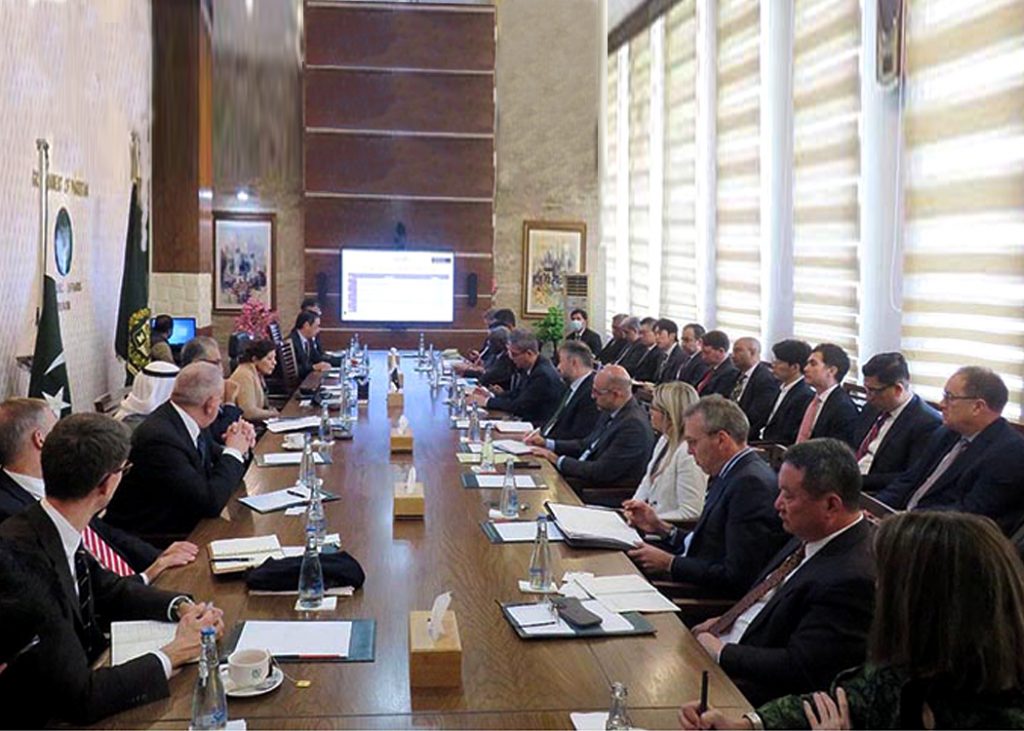
AVN Report
ISLAMABAD: Expressing confidence in Pakistan’s economic recovery during a meeting of the Donor Coordination Committee (DCC) at the Ministry of Economic Affairs, interim Federal Minister for Finance, Revenue, and Economic Affairs Dr Shamshad Akhtar has anticipated a GDP growth rate ranging from 2 to 2.5 percent for the fiscal year 2024.
Acknowledging the role of development partners in supporting Pakistan’s economy, Dr Akhtar emphasised their crucial contributions, particularly in the face of external challenges such as global financial tightening and escalating commodity prices.
The successful review of the IMF staff-level agreement was highlighted as a noteworthy achievement, underscoring the government’s commitment to macroeconomic adjustments.
Welcoming support from development partners, Dr Akhtar forecast a rebound in GDP growth from 0.5 percent in fiscal year 2023 to the projected 2-2.5 percent in 2024.
She said the government is actively pursuing reforms across various sectors, including fiscal consolidation, monetary policy, currency market stability, energy, business environment, and social safety nets.
Despite acknowledging the difficulties faced by vulnerable households due to fiscal constraints, Dr Akhtar reaffirmed the government’s dedication to addressing poverty and improving economic conditions.
Representatives from organisations such as the World Bank, EU, ADB, USAID, UNDP, Germany, Japan, WFP, IsDB, IFAD, and others congratulated Pakistan on the successful IMF review. These development partners stressed the importance of transparency, alignment with government priorities, and the timely disbursement of committed support.
Expressing gratitude for the received support, Dr Akhtar stressed the need for cooperation in efficiently managing off-budget support. She also drew attention to the devastating floods in Sindh and Balochistan, stressing the critical importance of swift and efficient transactions to address these challenges effectively.
In preparation for the upcoming CoP-28, efforts were urged to optimize the capital of Multilateral Development Banks (MDBs) and increase lending headroom. The commitment to meeting climate finance targets was reiterated through calls for debt-for-nature and debt-for-social-development swaps.
The meeting, attended by distinguished ambassadors from Italy, Japan, and Kuwait to Pakistan, as well as representatives from international donor agencies, including the World Bank, ADB, AFD, USAID, UNDP, JICA, TIKA, WFP, KOICA, FCDO, UNICEF and KfW.
Key figures from the European Union (EU), the Canadian High Commission, the United Nations Resident Coordinator, and the Australian High Commission also attended the meeting.
Senior officials from the Ministry of Economic Affairs, including the secretary, additional secretaries, and all joint secretaries, were also present in the meeting.








